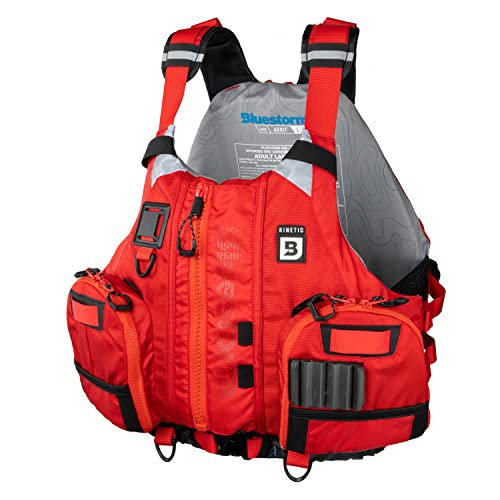My 2003 Tracker has a 21 gal. gas tank. In 2018 I removed all the old fuel & refilled with 100% gas. I also treated the fuel at that time. For various reasons I did not get to use the boat much the past 2 years. The tank is about 1/2 full. Question: Should I add fuel treatment before winter layup. I live in Southern Illinois so we don't get a lot of real cold weather. Also the boat is garage kept. Appreciate everyone's input.
You are using an out of date browser. It may not display this or other websites correctly.
You should upgrade or use an alternative browser.
You should upgrade or use an alternative browser.
100% Gas Question
- Thread starter Richard Boyett
- Start date

Help Support Nitro Owners Forum:
This site may earn a commission from merchant affiliate
links, including eBay, Amazon, and others.
I would definitely add a treatment before storage. I’m in Texas so I fish year round so my advice is probably a little suspect, but I don’t think it would hurt.
Fill it up with a higher octane fuel like a non ethanol and add the additives. However when you get ready to use your boat I would take a sample of the fuel for water.
JohnB
Well-Known Member
What does the octane level have to do with stability? It simply controls the rate of burn. I’m not saying you’re wrong, but rather that I’ve never heard of this.
I'd pick-up a inexpensive siphon pump and remove the gas from the tank. I pump the gas in a gallon jug, so I can look to see if there is any ethanol separation -- if not, I'll top off the gas in my truck. The crap that separated, I take to the recycle center.

$39.99 ($39.99 / Count)
Angler Aid First Aid Kit for Boaters and Onshore Anglers, 53 PCS Tools, Fishing First Aid and Essential Boating Tools and Accessories
Modern Outdoor Tackle

$39.95
Optimus GV75MG Waterproof Wired GPS Tracker for Motorcycles, Boats, Machinery, Assets
Optimus Tracking

$249.00
$499.00
Simrad Cruise 5-5-inch GPS Chartplotter with 83/200 Transducer Preloaded C-MAP US Coastal Maps
Jarboys Outdoors & Marine Supplies -AUTHORIZED

$18.99 ($9.50 / Count)
$28.00 ($14.00 / Count)
Botepon Boat Bungee Dock Lines, Boating Gifts for Men, Boat Accessories, Pontoon Accessories, Mooring Lines for Bass Boat, 4 Feet
Botepon

$23.98 ($0.40 / Foot)
Goglobe Throw Rope Throw Bag 60 Feet Floating Rope for Boating Kayaking Ice Fishing Boat Safety
LCL Shop

$188.00
$299.00
Boat Command | GPS Tracking | Remote Monitoring | Battery Alerts | Shore Power | Subscription Required
Viatrax Automation

$108.97
$139.99
Garmin 010-01550-00 Striker 4 with Transducer, 3.5" GPS Fishfinder with Chirp
Amazon.com

$169.00
$189.00
Goglobe Boat Safety Kit for Boating Sailing Kayaking Fishing Marine Safety Required by Coast Guard
LCL Shop
Even gas without ethanol becomes stale -- the higher octane helps to boost the octane level.What does the octane level have to do with stability? It simply controls the rate of burn. I’m not saying you’re wrong, but rather that I’ve never heard of this.
The gas has been sitting since 2018.
New DOE Study: Gasoline becomes stale before ethanol phase separation occurs
In Colorado, a study conducted by DOE’s National Renewable Energy Laboratory (NREL), found that the petroleum components of ethanol-blended gasoline become degraded and unfit for use in an engine long before the ethanol portion takes up enough water to cause phase separation in the fuel tank. “Phase separation” occurs when an excessive amount of water is introduced into the fuel tank leading the ethanol and water to mix and sink to the bottom of the tank. In other words, gasoline becomes “stale” and unusable before water uptake by the ethanol component becomes a concern.
As part of the study, NREL scientists stored gasoline-ethanol blends ranging from E0 (0% ethanol) to E85 (83% ethanol) in actual lawn mower fuel tanks over several months in a climate-controlled chamber meant to replicate hot, humid environments like Houston and Orlando. The samples were tested at regular intervals for evidence of gasoline weathering and water uptake. In every case, the hydrocarbon components of the fuel became unfit for use in an engine before water uptake became a concern.
For gasoline-ethanol blends, it often took more than three months for phase separation to occur, meaning the fuel had already weathered to a point it was unusable. “In a small engine fuel tank in a constantly high-temperature, high-humidity environment, it takes three months or longer for E10 and other ethanol blends to take up enough water for phase separation,” the study found. “This confirms the statement by Mercury Marine that water uptake in E10 blends ‘…does not happen at a level or rate that is relevant.’”
olefisherman456
Well-Known Member
if it were me i would empty the tank of the old gasoline and fill with 0 ethanol gas and treat . then your ready for spring with no worries.
The reason for the higher octane is to mix with the fuel already in the tank to boost it's octane level due to the age of the fuel. If not just get rid of the fuel all together.
JohnB
Well-Known Member
Jerry, I misunderstood your original post. In my feeble mind, I thought you were saying gasoline with a higher octane rating was more stable over time (i. e., 93 octane gas would “stay fresher longer” than 87 octane). That’s what I get for trying to cruise the forum while mowing the lawn.
Kirby Wilson
Well-Known Member
As gas sets untreated it's octane level will decrease. There are gas treatments that can help in this depleting process.
Also the higher octane will also allow for a little longer time.
Usually with gas treatments it is recommended to use the gas in 6 months.
I have had gas set in a small generator for two to three years (the gas was treated) and have not had a problem with it. This engine is not a higher performance boat motor, which will be more sensitive to the gas than a generator motor.
Also the higher octane will also allow for a little longer time.
Usually with gas treatments it is recommended to use the gas in 6 months.
I have had gas set in a small generator for two to three years (the gas was treated) and have not had a problem with it. This engine is not a higher performance boat motor, which will be more sensitive to the gas than a generator motor.
I would remove fuel that is as old as you indicate here. Also, I believe that it is critical to keep your tank absolutly full as much as reasonably possible. This will keep condensation from occurning inside the tank. I've never used fuel additives because I use my boat all year with no more than 3-4 weeks between outings- and that's rare. We are fortunate here to have non-ethonol gas readily avialable in various locations so Ive never used an ethonol fuel. Over the years I have made it a practice to fill my tank on the way home from a fishing trip. I do beleive that keeping air space out of your boat's fuel tank heads of many issues down the road.My 2003 Tracker has a 21 gal. gas tank. In 2018 I removed all the old fuel & refilled with 100% gas. I also treated the fuel at that time. For various reasons I did not get to use the boat much the past 2 years. The tank is about 1/2 full. Question: Should I add fuel treatment before winter layup. I live in Southern Illinois so we don't get a lot of real cold weather. Also the boat is garage kept. Appreciate everyone's input.
Kerz
Well-Known Member
The fuel components that make up higher octane gasoline usually are very stable as compared to Regular grade components. For example, a key premium grade component is alkylate (high $ stuff) which is very stable (high oxidation resistance and very low gum forming characteristics). In contrast something like FCC components that can makeup half of your regular grade gasoline. They are lower octane value and much less storage stable. There are industry specs that fuels are required to meet but they are designed for transportation usage not long-term storage.What does the octane level have to do with stability? It simply controls the rate of burn. I’m not saying you’re wrong, but rather that I’ve never heard of this.
Thus, the need for aftermarket additives. Regular gasoline meets the specs while premium grades can exceed by a factor of 8 or 10x.
Rate of burn, antiknock, etc are a separate discussion but very much influenced by these same gasoline blend streams/components.
Vic
Kerz
Well-Known Member
JohnBJerry, I misunderstood your original post. In my feeble mind, I thought you were saying gasoline with a higher octane rating was more stable over time (i. e., 93 octane gas would “stay fresher longer” than 87 octane). That’s what I get for trying to cruise the forum while mowing the lawn.
Well, you are correct, 93 will stay "fresher" longer.
Vic
Thanks for your input.I would remove fuel that is as old as you indicate here. Also, I believe that it is critical to keep your tank absolutly full as much as reasonably possible. This will keep condensation from occurning inside the tank. I've never used fuel additives because I use my boat all year with no more than 3-4 weeks between outings- and that's rare. We are fortunate here to have non-ethonol gas readily avialable in various locations so Ive never used an ethonol fuel. Over the years I have made it a practice to fill my tank on the way home from a fishing trip. I do beleive that keeping air space out of your boat's fuel tank heads of many issues down the road.
Kerz
Well-Known Member
Well, I guess it could be somewhere but not too likely. A couple of comments:
- Premium gasoline is very stabile in storage by composition, coupled with an approx underground temperature of 53°F make for good conditions
- A gasoline retailer will adjust purchase of premium based of sales volumes. Don't load up on something that has slow sales. You can end up of the negative side of wholesale gasoline pricing.
- Gasoline specifications change throughout the year. These changes are primarily based on regional volatility specs. For example winter gasolines have higher volatility than summer. This improves starting and driveability. Conversely high volatility depreciates driveability in the summer.
Kirby Wilson
Well-Known Member
I use 91 octane non ethanol gas, with mecury #2 fuel additive. Around Springfield, MO this is a popular fuel for fishing boats and commercial lawn mowers business, the gas is always fresh anymore. This is due to a lot more people fish in the winter now verses even 10 years ago.
Similar threads
- Replies
- 6
- Views
- 2K
- Replies
- 8
- Views
- 3K






















